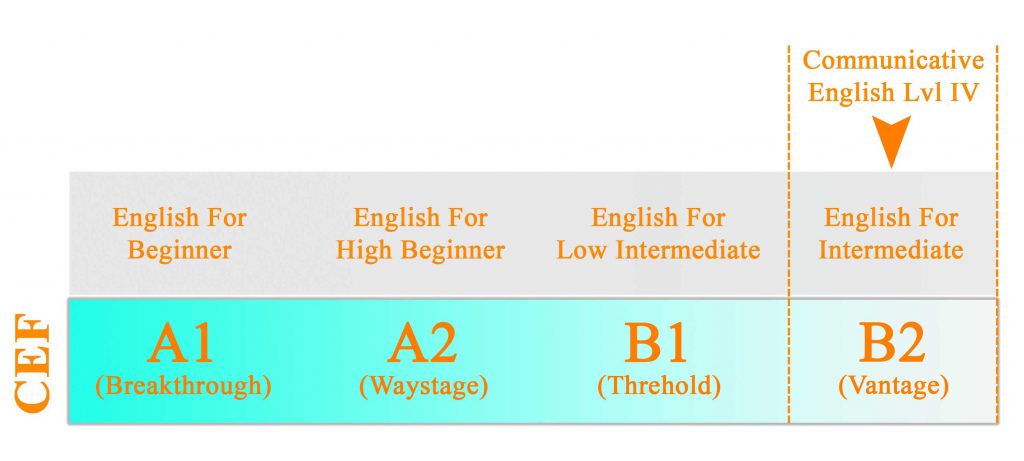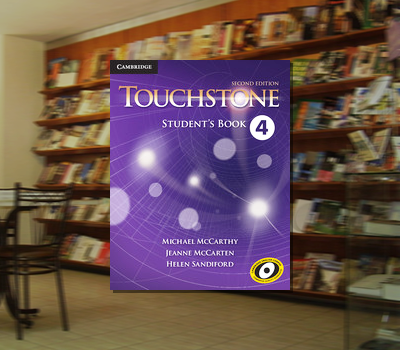Courses Information
- Levels :Level IV
- Duration :72 Hours
- Course Length :2 - 3 Months
- Minimum Age :16
- Minimum Level :Intermediate
- Course Fee :MMK 150,000
- Materials fees :MMK 35,000
- Location :Centre-1, Center-3
[caldera_form_modal id="CF5df05e8a9bff8" type="button"]Book Now [/caldera_form_modal]
Courses Lectures

Teacher Name
Center Name
Ideal For :
English For Intermediate (OR) Communicative English Level IV သည် တက္ကသိုလ်ဝင်တန်း ဖြေဆိုထားသူများ၊ ဘွဲ့ကြို ဘွဲ့ရနှင့် ရုံးဝန်ထမ်းများ၊ နိုင်ငံရပ်ခြားသို့သွားရောက်ပညာသင်ချင်သူများ၊ Cambridge First Certificate in English (FCE) ဖြေဆိုမည့်သူများ အတွက်အဓိရည်ရွယ်ပြီးဖွင့်ထားသော သင်တန်းဖြစ်ပါသည်။
Course Details :
Cambridge University Press ၏အရောင်းရဆုံးစာရင်းဝင်Cambridge International Corpus ကိုမှီငြမ်းရေးသားထား Course Books နှင့်သင်ကြားပေးမည်ဖြစ်ပါသည်။ အင်္ဂလိပ်ဘာသာစကားဖြင့်ဆက်သွယ်ပြောဆိုရာတွင် အသုံးများသောအသုံးအနှုန်း အကြောင်းအရာများနှင့် ပြုစုရေးသားထားပြီး မြန်မာကျောင်းသားအများစု၏ အားနည်းချက်ဖြစ်သော Conversation Management Strategies ကိုထည့်သွင်းထားပါသည်။
Course Plan :
B2 (Vantage) - နိုင်ငံအသီးသီး၏ လူမှုဆက်ဆံရေးများ၊ ရိုးရာဓလေ့များနှင့် ပက်သက်သောအကြောင်းအရာများကို အမျိုးအစားစုံလင်သော English Grammar များ၊ မှန်ကန်သော ဝါကျဖွဲ့စည်းပုံနည်းစနစ်ကောင်းများ နှင့်တွဲဖက်၍လေ့လာနိုင်မည်ဖြစ်ပါသည်။ နေ့စဉ်တွေ့ကြုံရင်ဆိုင်ရသော ပြဿနာဖြေရှင်းမှုဆိုင်ရာ စွမ်းရည်ကိုအခြေခံ၍ အဆင့်မြင့် Sentence Structure များကိုပါသင်ယူရမည်ဖြစ်သည်။ Intermediate Level English ဘာသာစကားစွမ်းရည် ကိုလည်းရရှိမည်ဖြစ်ပါသည်။

- Ask questions to get to know someone.
- Tell interesting stories about my life.
- Highlight key moments in a story.
- Highlight important information in a story.
- Understand a conversation about an accident.
- Understand a podcast about an athlete’s life story.
- Read an article about a person who overcame an obstacle.
- Write an anecdote about facing a challenge.
- Talk about my tastes in clothes and fashion.
- Compare how people look different over time.
- Describe patterns, materials, and styles of clothing.
- Show I understand by summarizing what people say.
- Use Now to introduce follow-up questions.
- Understand conversations about food, music, and movies.
- Understand people discussing trends.
- Read an article about how to develop a personal style.
- Write interview questions and answers.
- Talk about my country’s cultural traditions.
- Talk about manners, customs, and appropriate behavior in my country.
- Use expressions like to be honest to sound more direct.
- Use of course to show I understand or agree.
- Understand a conversation about living away from home.
- Understand people explaining proverbs.
- Read an article about proverbs.
- Write an article about a favorite proverb.
- Talk about going out and socializing.
- Talk about things I am supposed to do.
- Talk about things I think will happen or plans that changed.
- Check my understand with “statement questions.”
- Use so in different ways.
- Understand people discussing their evening plans.
- Understand someone talk about her social style.
- Read an article about introverts and extroverts.
- Write an article about my social style.
- Talk about what the legal age should be for different activities.
- Discuss rules and regulations.
- Talk about crimes and what punishments should apply.
- Use expressions like Basically,…to organize what I say.
- Use expressions like That’s a good point to show someone has a valid argument.
- Understand a conversation about a crime.
- Understand a class debate about changing the law.
- Read an article about privacy issues with smartphones.
- Write a comment responding to a web article.
- Talk about coincidences and superstitions.
- Talk about the order of events in the past.
- Give reasons for why things happened.
- Show things I have in common.
- Repeat ideas in other words to be clear.
- Use just to make what I say softer or stronger.
- Understand someone talking about a coincidence.
- Understand conversations about superstitions.
- Read an article about identical twins.
- Write about a family story.
- Talk about things you have other people do for you.
- Talk about things that need to be fixed.
- Use short sentences in informal conversations.
- Use expressions like Uh-oh when something goes wrong.
- Understand a conversation about planning an event.
- Understand people talking about things they need to fix.
- Read an article about problem-solving skills.
- Write a proposal presenting a solution to a problem.
- Talk about reactions and behavior.
- Talk hypothetically about the past.
- Describe emotions and personal qualities.
- Speculate about the past.
- Use expressions like That reminds me(of) to share experiences.
- Use like in formal conversations.
- Understand people sharing taxi experiences.
- Understand a conversation about rude behavior.
- Read an article on making apologies.
- Write a note of apology.
- Talk about possessions and materialism.
- Discuss money management.
- Report things that people said.
- Report questions that people asked.
- Report the content of conversations I’ve had.
- Quote other people or sources of information.
- Understand an interview about possessions.
- Understand people talking about what they couldn’t live without.
- Read a blog about decluttering.
- Write a survey article about my classmates’ possessions.
- Talk hypothetically about the past.
- Talk about celebrities and being famous.
- Use tag questions to give opinions and check information.
- Use tag questions to soften advice.
- Answer difficult questions with expressions like it’s hard to say.
- Understand someone giving advice.
- Understand people talking about success.
- Read an article about child stars.
- Write profile of a successful person.
- Talk about social changes.
- Talk about environmental problems.
- Link ideas with expressions like although, because of, in order to , and instead.
- Refer back to points made earlier in the conversation.
- Use formal vague expressions.
- Understand a discussion about workplace trends.
- Understand conversations about technology trends.
- Read an article about success via the internet.
- Write a comment for a website about technological trends.
- Talk about career planning.
- Highlight important information.
- Talk about professions and job prospects.
- Talk about my future career plans.
- Use expressions to introduce what I say.
- Say I don’t know if … to involve others.
- Understand a conversation with a personal trainer.
- Understand a discussion about a job advertisement.
- Read an article about preparing for a job interview.
- Write a cover letter for a job application.

